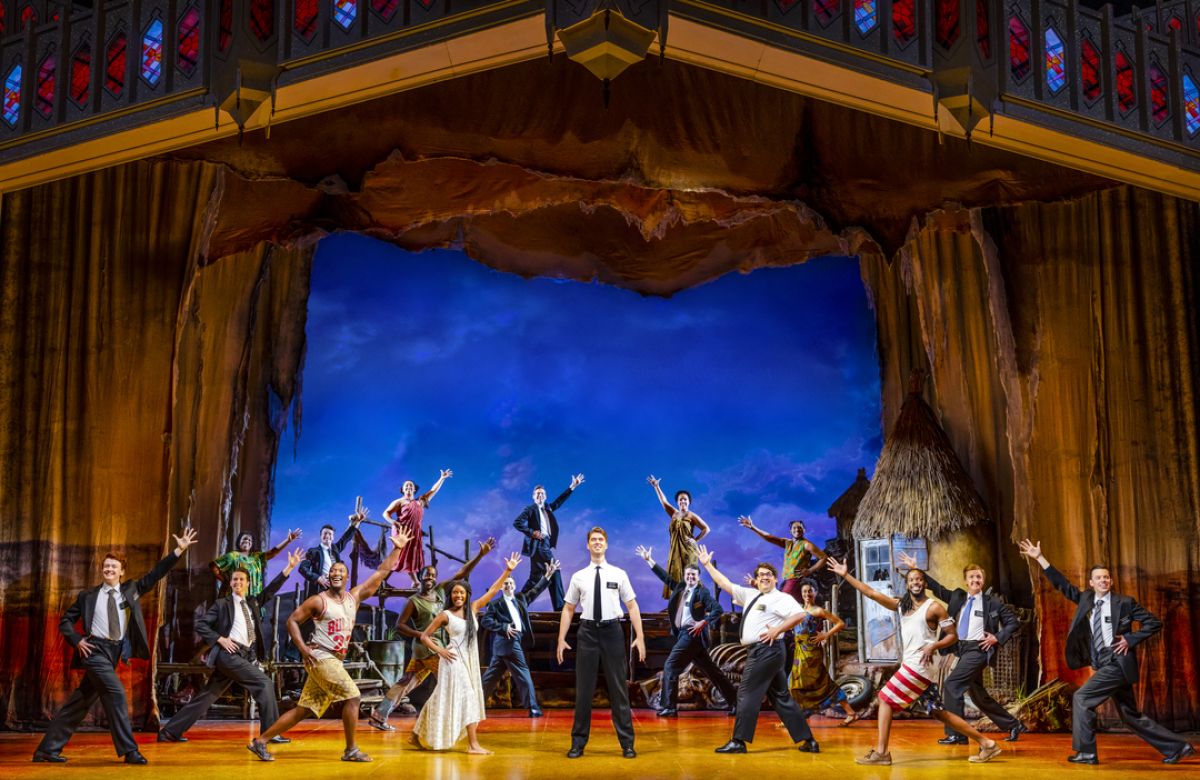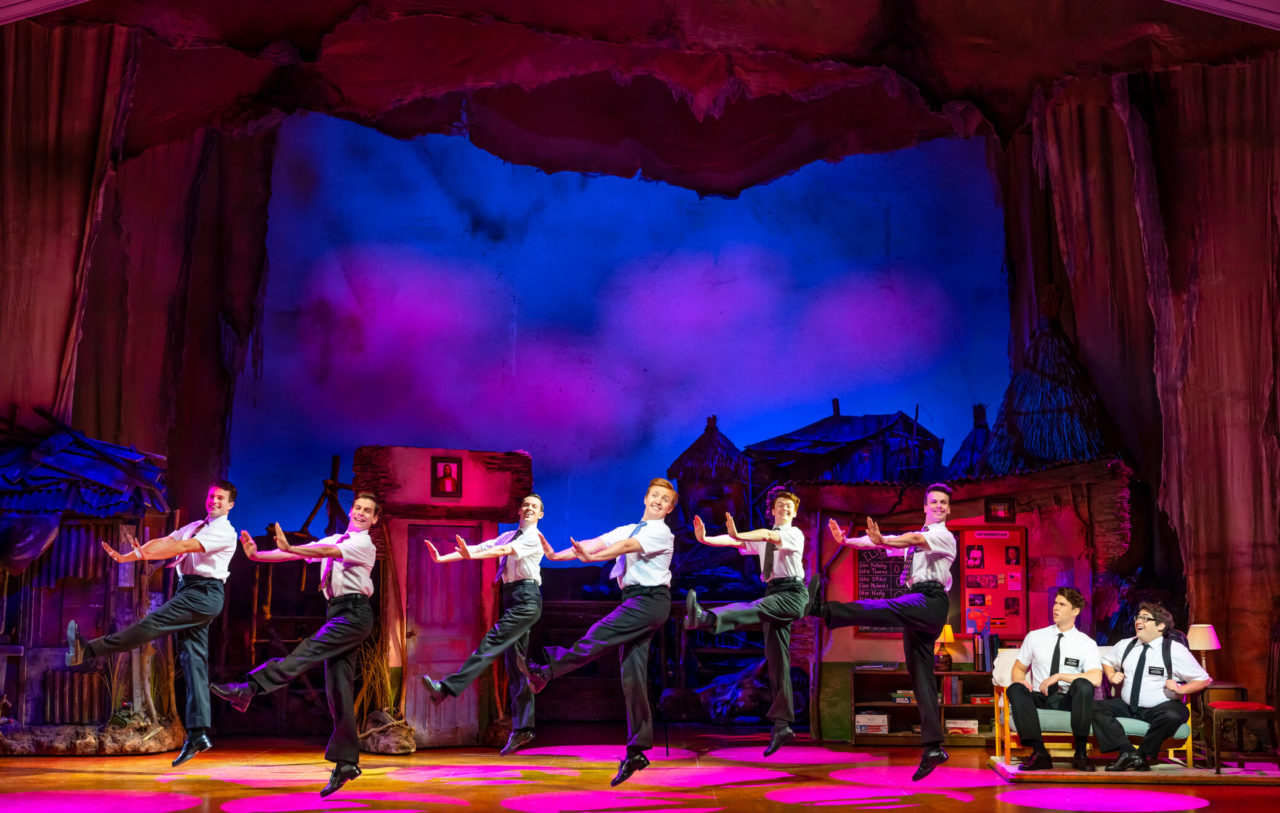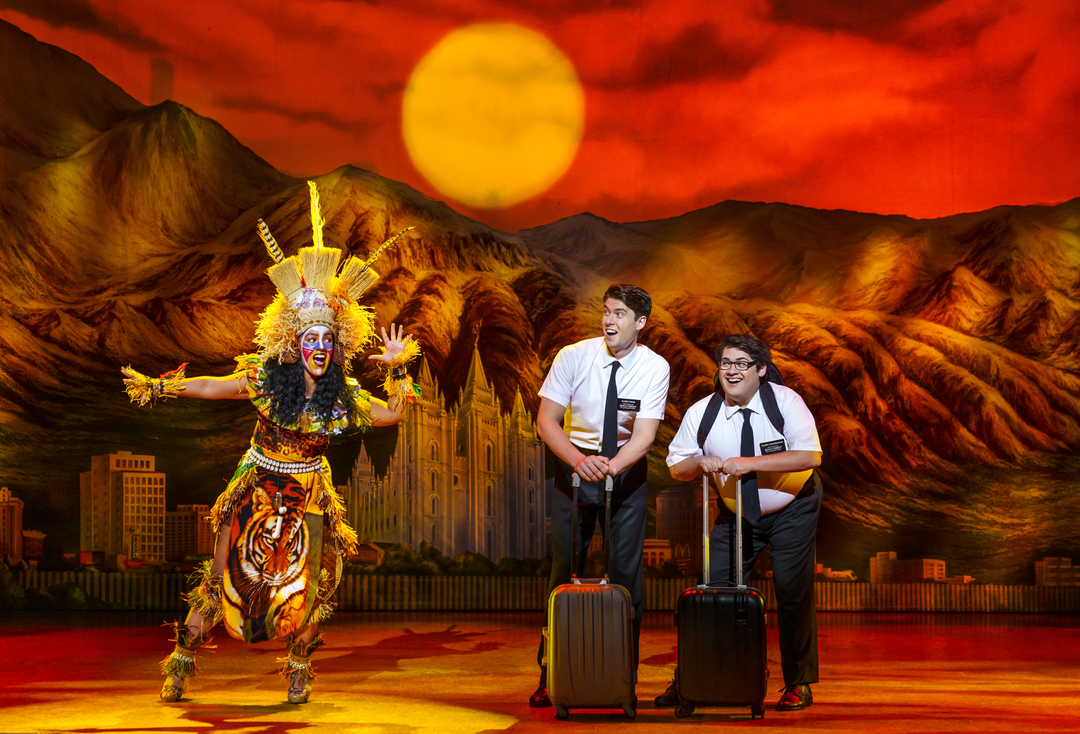Review: The Book of Mormon
By Ella Robinson and emilyturvey

There is no review, preview, or warning that can quite prepare you for the musical The Book of Mormon. Infamously created by the minds behind South Park, even without knowledge of the plot, there is an unwritten expectation that the humour of this musical comedy will push the boundaries.
Indeed 2 hours and 20 minutes later, you are almost guaranteed to be left singing along to the catchy soundtrack but also in a slight existential crisis about how politically correct you really are.
The plot follows a group of American Mormons, namely the duo Elder Price and Elder Cunningham. Leaving behind the utopia of America, they are sent to Uganda to embark on their duties as missionaries. It is at this moment that your politically correct heart might first sink, upon the realisation that it is Uganda and more broadly the continent of Africa (rather than Mormonism) that is to become the butt of most of the jokes.
The true merit of the production is in its staging and incredible standard of performance. From the very first musical number, ‘Hello!’, we are introduced to the pure talent of the cast who maintain amazing energy and commitment to their roles throughout. Even during their final bows, the characterisation was brilliant, with Elder McKinley being a particularly strong performer.

Whilst not on the scale of Hamilton, the historical explanations of the formation of the Latter Day Saints were actually informative and very funny. It also poked fun at the idea and need for an ‘All American’ religion with its ‘All American’ prophet.
The show really came into its own during the fifth song of the show, ‘Turn it off’, with humorous lyrics joking about the suppression of feelings as a “nifty little Mormon trick”. It revealed the unpredictability of what was to come, with the lights ‘turning off’ and back on to reveal the Mormons tap dancing in pink waistcoats, again with Elder McKinley as its star.
The Book of Mormon was about as far from predictable as you could get, with our interval predictions quickly quashed by ‘Spooky Mormon Hell Dream’, as Elder Price ended up singing alongside Hitler, Genghis Khan, the serial killer Jeffery Dahmer, and the guy who “got O. J. freed!” The staging of hell was incredible, but no wonder actual mormons aren’t fans of the musical’s portrayal of their religion.
However, it is rather telling that our favourite songs are those that make no mention of the Elders mission to Uganda. Early on, the musical was clearly satirical, with a woman in ‘traditional African dress’ singing a variation on the ‘Circle of Life’ before revealing she had never in fact been to Africa. It seemed to be mocking Americans’ perceptions of Africa the continent, a thread I thought continued into ‘Hasa Diga Eebowai’.

With lines joking about drought, famine, FGM, saying “and eighty percent of us have AIDS”, this seemed such a stereotypical portrayal of Uganda that it must be mocking the Elders and Americans in general for believing such a perception. However, the AIDS and FGM jokes continued until the end of the play, with Elder Cunningham ‘saving them’ from these problems with Star Wars references and elaborated stories.
The musical does satirise the White saviour complex, but bizarrely not always at the expense of the White saviours, the Mormons. Mutumbo, a member of the Ugandan village, repeatedly talks about wanting to rape a baby to cure his AIDS, and Elder Cunningham persuades him to rape a frog instead. Yes, you read that sentence right, so you can probably start to understand why we left the theatre feeling slightly scarred.
None of the simplistic, monochrome marketing quite prepares you for the presentation of Uganda, as an animated yet basic village fairly removed from ‘modern society’ where multiple villagers are quickly declared as having AIDS. The colonial and imperial undertones were automatically obvious and uncomfortable, and I don’t think these can be explained as simply a symptom of being too politically correct.
The banner outside brands it “The funniest musical of all time”, but The Sunday Telegraph’s review “It’s hilarious. God have mercy upon my soul” now reads slightly differently having seen the show. Some of the jokes felt more incriminating to those who laughed at them.

With a very White, very middle-class audience, it made us question who these jokes were really targeted at. As Nathaniel Hall put it, “We laugh along with them [the Elders] and by the end the audience is cheering for them as the unlikely heroes as they colonise the African people.” Honestly, we’re surprised this criticism isn’t more mainstream.
You can’t knock the cast, all the performances were brilliant, with Avia Tulley as Nabulungi a shining star. Much of the cast are labelled in the programme as “ensemble”, but they were all key parts of the show, and there is no one you can criticise for their musical, acting or dancing abilities.
But if someone asked me if I’d recommend it, I’m not sure what I’d say. At least go into it educated, this is not simply a play laughing at Mormons and religion. The missionary zeal, and particularly its colonial and racist undertones, which dominated The Book of Mormon, were conspicuously absent from all previews and marketing, with vague references to “a place that’s about as far from Salt Lake City as you can get”. Would it be so successful if people knew what to expect?
The Book of Mormon plays at the Palace Theatre until the 1st of January before continuing its UK tour through 2022.







